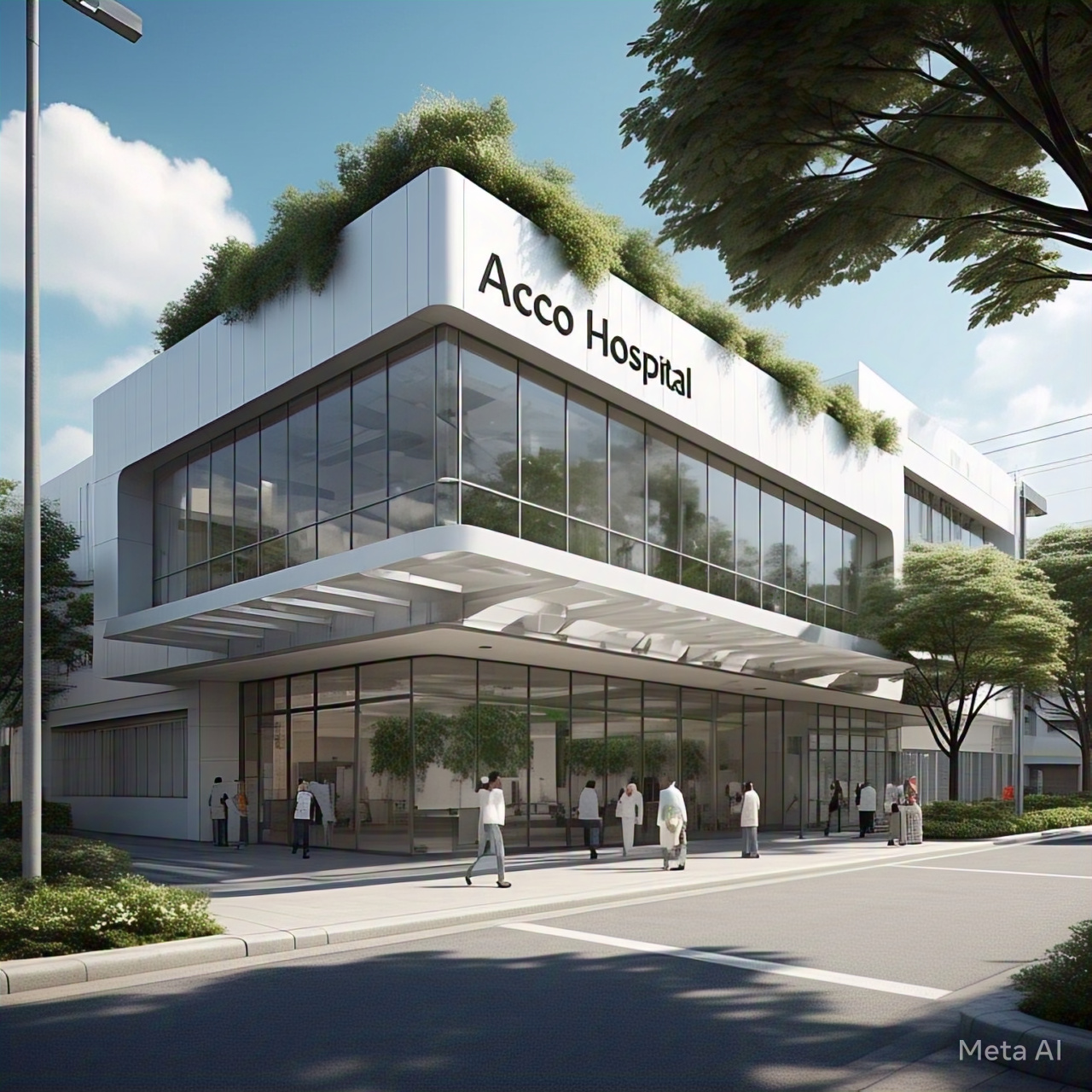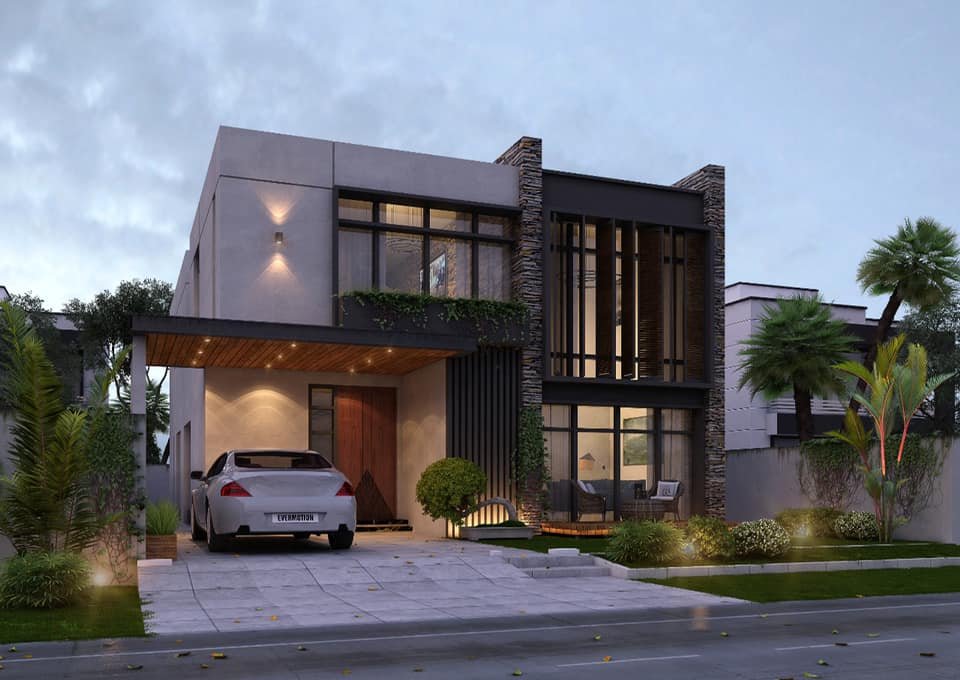
The Journey of ACCO: Building Faisalabad’s Industrial Backbone
Table: Key Milestones in ACCO’s Industrial Development Projects in Faisalabad
| Year | Project Name | Description | Impact on Industry | Key Innovations by ACCO |
|---|---|---|---|---|
| 2005 | Textile City Project | Designed and built a large-scale textile hub | Increased textile production and job creation | Modern industrial design and efficient space utilization |
| 2009 | Faisalabad Industrial Estate (FIE) | Development of an industrial estate for multiple sectors | Boosted industrial diversification in Faisalabad | Eco-friendly construction and resource management |
| 2013 | Chemical Processing Zone | Construction of chemical plants and processing facilities | Enhanced chemical industry presence | Safety protocols and sustainable waste management |
| 2017 | Faisalabad Dry Port Infrastructure | Built advanced infrastructure for the dry port | Improved logistics and export capabilities | Strategic planning for cargo handling and warehousing |
| 2021 | High-Tech Industrial Park | Development of a state-of-the-art tech and industrial park | Brought cutting-edge technology industries to Faisalabad | Smart construction techniques and energy efficiency |
ACCO’s Contributions to Faisalabad’s Industrial Backbone:
- Textile Industry: ACCO’s early projects focused on building state-of-the-art textile factories that bolstered Faisalabad’s reputation as the textile capital of Pakistan. ACCO’s designs optimized production flow, saving time and reducing costs.
- Diversification into Other Sectors: As Faisalabad’s industrial landscape expanded, ACCO diversified its portfolio by developing industrial estates that housed companies from various sectors, including chemical processing, engineering, and IT.
- Sustainable and Eco-Friendly Practices: In recent years, ACCO has incorporated eco-friendly construction techniques into its projects, helping industries adopt more sustainable practices. This includes the use of renewable energy solutions and green building designs.
- Enhancing Logistics and Export: By constructing the Faisalabad Dry Port infrastructure, ACCO played a key role in improving logistics for local industries, making it easier to export goods internationally.
- Innovation in Industrial Construction: ACCO’s high-tech industrial park project introduced cutting-edge technology to Faisalabad, attracting tech-based industries and fostering innovation.
Conclusion: ACCO has been integral to Faisalabad’s rise as an industrial powerhouse. Through strategic planning, innovative construction techniques, and a focus on sustainability, ACCO continues to build and strengthen the city’s industrial backbone, contributing to its economic growth and global recognition.
Lorem ipsum dolor sit amet, consectetur adipiscing elit. Ut elit tellus, luctus nec ullamcorper mattis, pulvinar dapibus leo.

The Journey of ACCO: Building Faisalabad’s Industrial Backbone
Faisalabad, often called the “Manchester of Pakistan,” is known for its sprawling textile industry and its contribution to the country’s economic growth. The city serves as a major hub for industrial activities, particularly in textiles, but its influence has grown over the years to include several other industries such as chemicals, logistics, and technology. The rapid development of Faisalabad’s industrial sector has been significantly shaped by major players in the construction and development industry, with one such key player being ACCO (Associated Consulting & Construction).
ACCO has been at the forefront of numerous construction and infrastructure projects that have contributed to Faisalabad’s industrial backbone. With a blend of innovation, sustainability, and a keen understanding of industrial needs, ACCO’s journey in building Faisalabad’s industrial framework is a testament to its leadership and expertise in the construction sector. This article delves into ACCO’s journey, its impact on the city’s industrial landscape, and how it has helped shape Faisalabad’s economic future.
A Visionary Start: ACCO’s Early Projects in Faisalabad
The foundations of Faisalabad’s industrial identity were laid by its flourishing textile industry, and this is where ACCO first began making its mark. In the early 2000s, Faisalabad was already recognized for its contributions to the textile sector, but it was lacking the infrastructure that could support further growth. ACCO recognized this need and started working closely with industrialists to design and build textile factories that were optimized for productivity, cost efficiency, and long-term sustainability.
One of ACCO’s earliest and most significant projects in Faisalabad was the Textile City Project in 2005. This project involved the design and construction of a large-scale textile hub, which housed several textile mills and production units. By focusing on modern industrial design and efficient space utilization, ACCO ensured that these factories could operate at maximum efficiency while minimizing operational costs. The impact was immediate—textile production surged, and new job opportunities were created, further solidifying Faisalabad’s status as the textile capital of Pakistan.
Expanding into New Sectors: Diversifying Faisalabad’s Industrial Base
While textiles have remained at the core of Faisalabad’s industrial activities, the city has seen considerable diversification over the last two decades. ACCO has been instrumental in this diversification process, expanding its projects beyond textiles to include other key sectors like chemicals, engineering, and technology.
In 2009, ACCO undertook one of its most ambitious projects, the development of the Faisalabad Industrial Estate (FIE). This industrial estate was designed to accommodate multiple industries under one roof, including chemicals, pharmaceuticals, and engineering. The estate was a significant step towards industrial diversification, as it provided a platform for non-textile industries to establish themselves in Faisalabad. ACCO’s role in designing and constructing the industrial estate was critical, as they implemented eco-friendly construction techniques and ensured that the infrastructure was built with sustainability in mind.
The Chemical Processing Zone, built in 2013, marked another key milestone in ACCO’s journey. Faisalabad’s chemical industry had been growing steadily, but the lack of dedicated infrastructure was holding it back. ACCO’s construction of state-of-the-art chemical plants and processing facilities allowed the industry to flourish, attracting investment and increasing production capacity. ACCO also implemented strict safety protocols and waste management systems in these facilities, which helped the chemical industry maintain high standards of environmental responsibility.
Modernizing Logistics: Building Faisalabad’s Export Infrastructure
As Faisalabad’s industrial output continued to grow, so did the need for better logistics and transportation infrastructure. The city’s position as an industrial hub meant that efficient export capabilities were crucial to maintaining its competitive edge, both domestically and internationally.
In 2017, ACCO embarked on a project that would transform Faisalabad’s export infrastructure—the construction of the Faisalabad Dry Port Infrastructure. This project was aimed at enhancing the city’s logistics network by improving the dry port’s handling capacities, cargo storage, and distribution channels. The dry port serves as a key node for the export of goods produced in Faisalabad, particularly textiles, chemicals, and other industrial products. By modernizing the dry port infrastructure, ACCO ensured that Faisalabad’s industries could export their goods more efficiently, reducing delays and logistical bottlenecks.
The dry port project was also notable for its emphasis on strategic planning and long-term sustainability. ACCO designed the infrastructure to handle the growing volume of exports while incorporating modern warehousing techniques and efficient cargo management systems. The result was a more streamlined export process that further cemented Faisalabad’s reputation as an industrial powerhouse.
High-Tech Industrial Parks: Attracting Cutting-Edge Industries
The next stage in Faisalabad’s industrial evolution came with the rise of technology-based industries. Recognizing the global shift towards technology and innovation, ACCO initiated a project that would bring high-tech industries to Faisalabad—the High-Tech Industrial Park. This state-of-the-art industrial park, completed in 2021, was designed to accommodate technology companies and advanced manufacturing units that require cutting-edge infrastructure and energy-efficient facilities.
ACCO’s vision for the High-Tech Industrial Park was to create an environment that fosters innovation while providing companies with the tools and infrastructure they need to thrive. The park features smart construction techniques, energy-efficient buildings, and advanced utilities that cater specifically to the needs of high-tech industries. By attracting technology-based industries to Faisalabad, ACCO helped the city diversify its industrial base even further, positioning it as a hub for both traditional and modern industries.
The introduction of high-tech industries also had a ripple effect on the local economy, creating new job opportunities in sectors such as IT, engineering, and electronics. ACCO’s commitment to sustainability was evident in the design of the industrial park, with the incorporation of renewable energy solutions and environmentally friendly construction practices. This project marked a turning point in Faisalabad’s industrial journey, bringing the city into the fold of global technological advancements.
Sustainability at the Core: ACCO’s Eco-Friendly Initiatives
Throughout its journey, ACCO has been deeply committed to sustainability and eco-friendly practices. As the world moves towards more sustainable industrial practices, ACCO has ensured that Faisalabad’s industrial infrastructure keeps pace with global trends. The company has integrated green building techniques, energy-efficient systems, and renewable energy solutions into many of its projects, helping industries reduce their environmental footprint.
For example, in the Faisalabad Industrial Estate and High-Tech Industrial Park projects, ACCO implemented renewable energy solutions such as solar power and energy-efficient lighting. This not only reduced the environmental impact of these industrial estates but also helped businesses lower their energy costs.
Additionally, ACCO’s emphasis on waste management and resource efficiency in the Chemical Processing Zone project ensured that industrial growth did not come at the expense of environmental sustainability. By incorporating these eco-friendly practices into its projects, ACCO has positioned itself as a leader in sustainable industrial development.
Conclusion: ACCO’s Lasting Legacy in Faisalabad
ACCO’s journey in building Faisalabad’s industrial backbone is a story of innovation, growth, and sustainability. From its early projects in the textile industry to its modern high-tech industrial parks, ACCO has played a crucial role in shaping the city’s industrial landscape. Its projects have not only contributed to Faisalabad’s economic growth but have also helped the city diversify its industrial base, attract new investments, and embrace sustainable practices.
As Faisalabad continues to grow and evolve as an industrial hub, ACCO’s legacy will remain an integral part of the city’s success. The company’s commitment to excellence in construction, sustainability, and innovation ensures that it will continue to play a key role in the city’s future development, strengthening Faisalabad’s position as a leader in Pakistan’s industrial sector.




